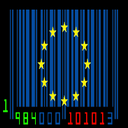28C3 - Version 2.3.5
28th Chaos Communication Congress
Behind Enemy Lines
| Referenten | |
|---|---|
|
|
Suso Baleato |
| Programm | |
|---|---|
| Tag | Day 3 - 2011-12-29 |
| Raum | Saal 2 |
| Beginn | 21:45 |
| Dauer | 01:00 |
| Info | |
| ID | 4802 |
| Veranstaltungstyp | Vortrag |
| Track | Society and Politics |
| Sprache der Veranstaltung | englisch |
| Feedback | |
|---|---|
|
Haben Sie diese Veranstaltung besucht? Feedback abgeben |
Towards a Single Secure European Cyberspace?
What the European Union wants. What the hackerdom can do..

The "European Great Firewall" was the way that European civil rights organizations has addressed the proposal to create a "single European cyberspace". Surely other lectures will describe the technicalities of the proposal. This lecture will go beyond that, describing a vulnerability that the proposal reveals in the power structures of the European and world governance, that could be exploited by the hackerdom if the war is understood as a value to be avoided.
The proposal registered by the body of the Council of the European Union to create «a single secure European cyberspace» marks a pivotal moment in the development of the Union. Three reasons grounds that statement. First, because after decades omitting the use of the term, the semantics of «cyberspace» is officially adopted by the Union's policy. Second, because that adoption enacts a new field of community policy making. Third, because the new field is formulated by binding, under a «single European» frame, the home affairs with the security and defense areas – the building blocks of sovereignty since the Peace of Westphalia.
The notion of cyberspace as a global wide computer mediated domain of human agency is not new. Furthermore, the saliency of that domain in the contemporary society can hardly be refuted: Beyond the contributions from the Literature and the Academia, the most reliable source of empirical evidence can be found in the production of the concerned polities to address the deployment and the effects of informatics and telecommunications – the constituent technologies of cyberspace.
The legal developments on the protection of personal data and on the enforcement of intellectual property rights, or the budgetary assignments to the field of information society are meaningful proofs of that saliency. However, the idea of an «European cyberspace» (a) impugns the aforementioned «global wide» range by assuming the possibility to constrain the agency to the boundaries of a political body – the EU – which then becomes the holder of the sovereignty in that domain, what (b) defies the traditional monopoly of the State regarding the exercise of power over their own territory.
As Kymlicka has pointed out, the existence of a common identity is a requirement of statality, at leas in the political configuration designed under the liberal democracy paradigm. Provided that cyberspace favours the establishment of social interactions not limited by the constrains that provides statality, it is possible to conform alternative identities that can enact a conflict with the identitary demarcations of the State and, therefore, following Foucault, to challenge the discoursive hegemony of the State.
